Women farmers in South Sudan find their groove: Making decisions and leading the fight against hunger
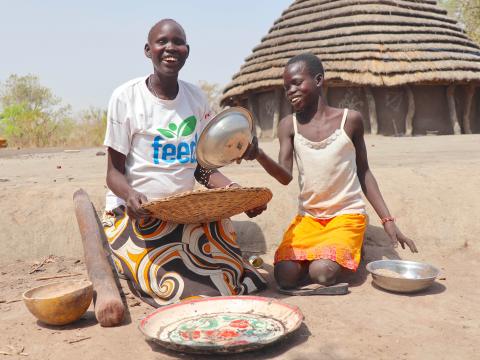
Adut, a young mother at 29 with eight children lives in a small village in South Sudan’s Gogrial West County, a part of Warrap State. The third of four children, she was raised by single mother in a cattle camp.
“I wish my mother had the opportunity to study like us. We would be better off and my elder brother would not have joined and died in the army”, Adut sadly shares. She knew education would have made a difference in their lives.
“Our uncles took advantage of the situation and forced me into marriage at 14. They took the 30 heads of cattle that were offered as a dowry for themselves. My mother could not say a word because men had the final say over girls and marriage”, she adds.
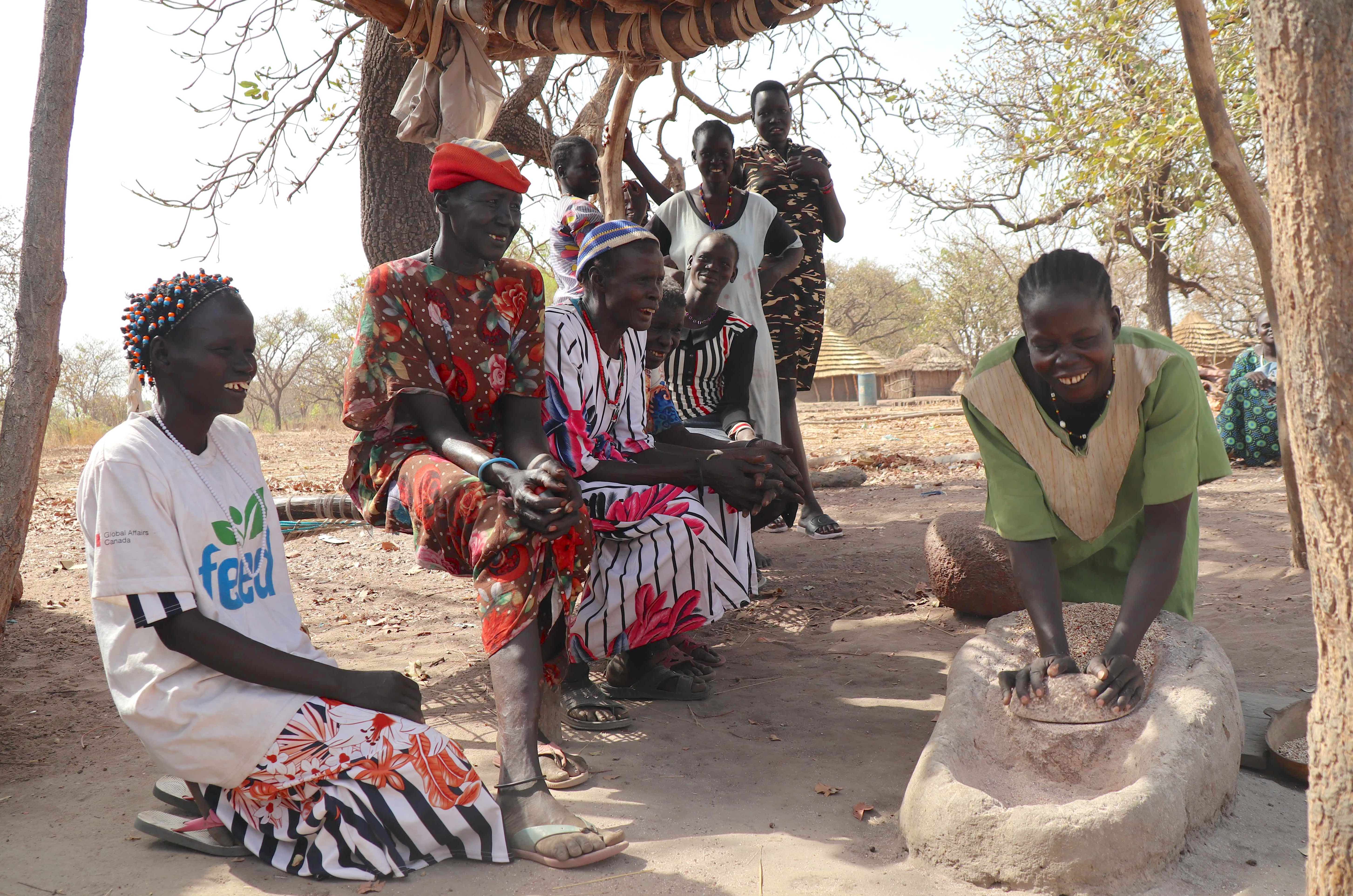
Many women like Adut’s mother are disempowered by long-held tradition that men in the family can decide over their lives, even marry them against their will. Without education, this continued through several generations, even until now.
Adut’s husband teaches at a local school in Kuajok town. Like the other teachers, he earns a meager wage from the government and often can work for months without getting paid.
Women like Adut step up for their families to eat and survive. “Women work more than men to provide for their families because more than anyone else, it is us women who feel the pain when our children go hungry”, she says.
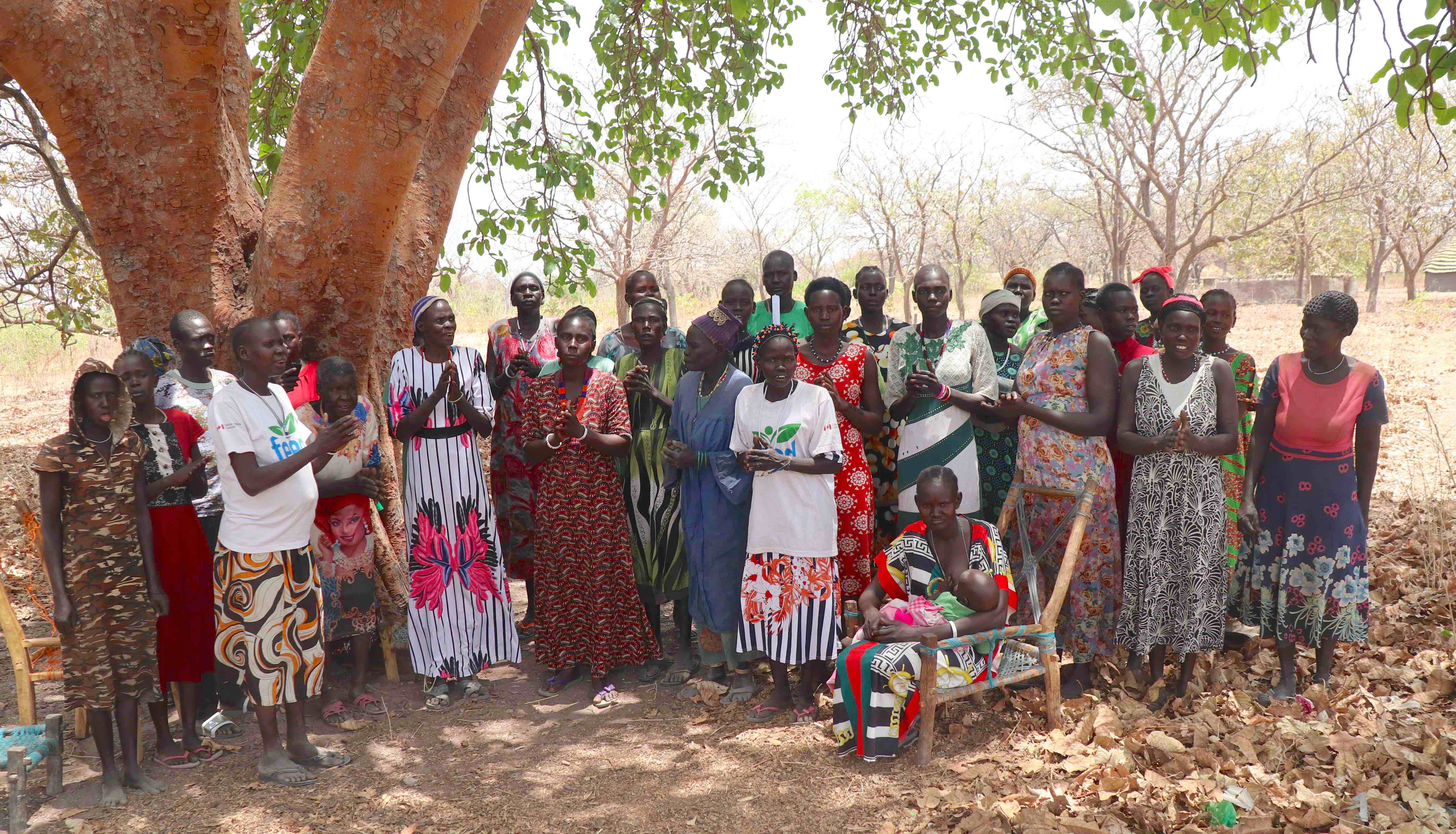
World Vision's Fortifying Equality and Economic Diversification for Resilience (FEED II) Project, funded by Global Affairs Canada (GAC), is implemented in partnership with CARE and War Child Canada. It aims to help community members reflect on the roles of women and men in their community and promote gender equality.
The project’s goal is not to make men uncomfortable or feel guilty, but to encourage both genders to work together to create safer households and enhance women’s leadership skills.
Our uncles took advantage of the situation and forced me into marriage at 14. They took the 30 heads of cattle that were offered as a dowry for themselves.
Farming is one of the areas where women already have a lot of influence, hence, the project also trains them, along with men, to improve livelihoods and help South Sudan combat hunger.
Warrap is a state that has a lot of arable land and cattle. It is rich in resources, but many families still go hungry due to many challenges. Some leave due to conflict. Many do not have money to buy seeds and tools while others are unaware of modern techniques to grow nutritious food. Hunger is an ongoing problem.
Adut says, “My biggest fear as a mother was to see my children suffer from hunger especially during the dry season. We suffered severe hunger for many years until the project was introduced and helped us grow our own food. It brought joy to us.”
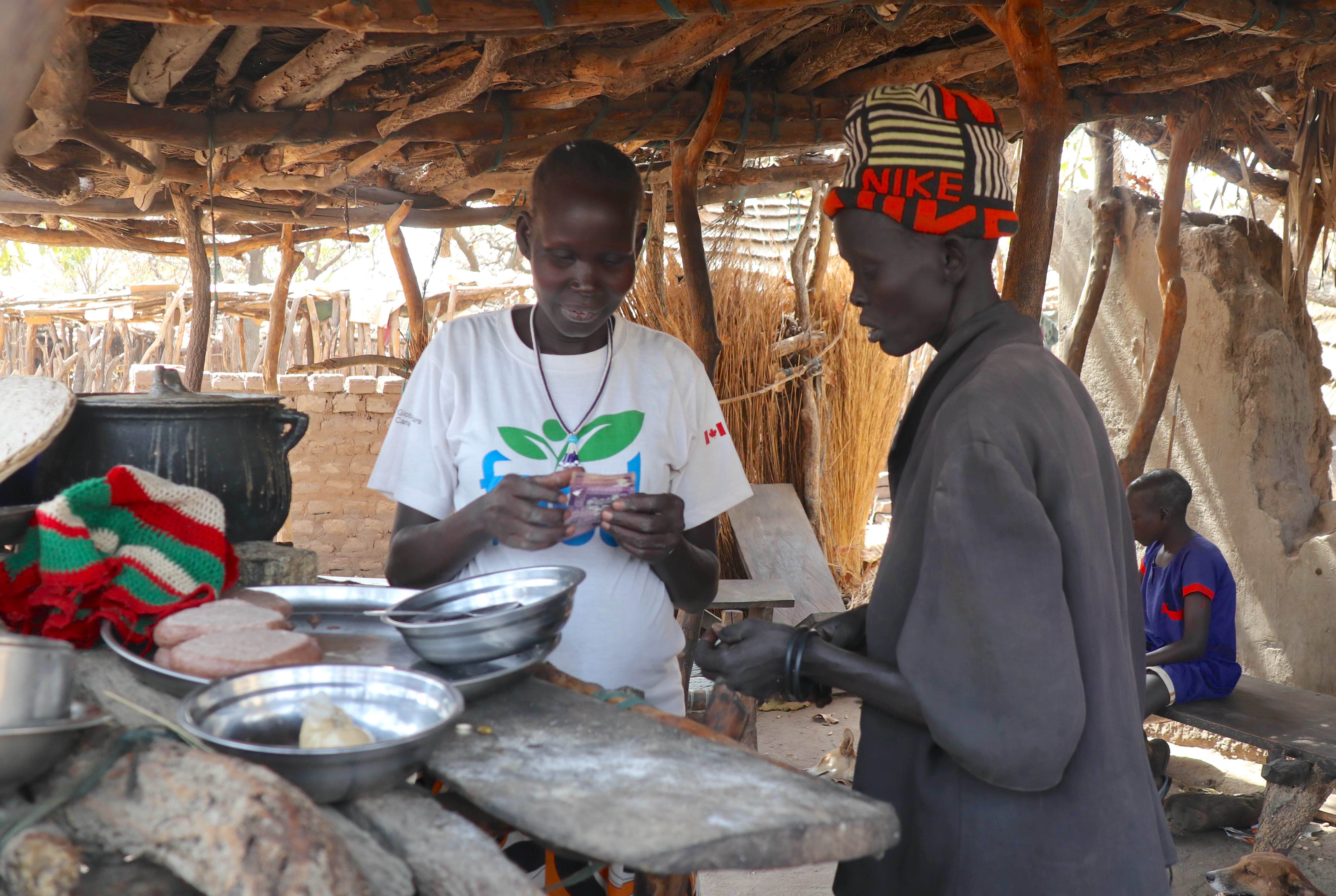
Now a proud farmer and a leader of the Thurnyior Farmer Field Business School, Adut was selected by her community to lead the group of 25 women and men who farm collectively.
She is described by her group members as a hardworking woman “My group produced 275 large bags of groundnuts last year for the first time as individuals and as a group”, Adut proudly shares.
“During the rainy season, I started growing and selling vegetables which earned me SSP35,000 (USD $90). It was enough for me to open a food shop and bakery which now supports the family”, she adds.
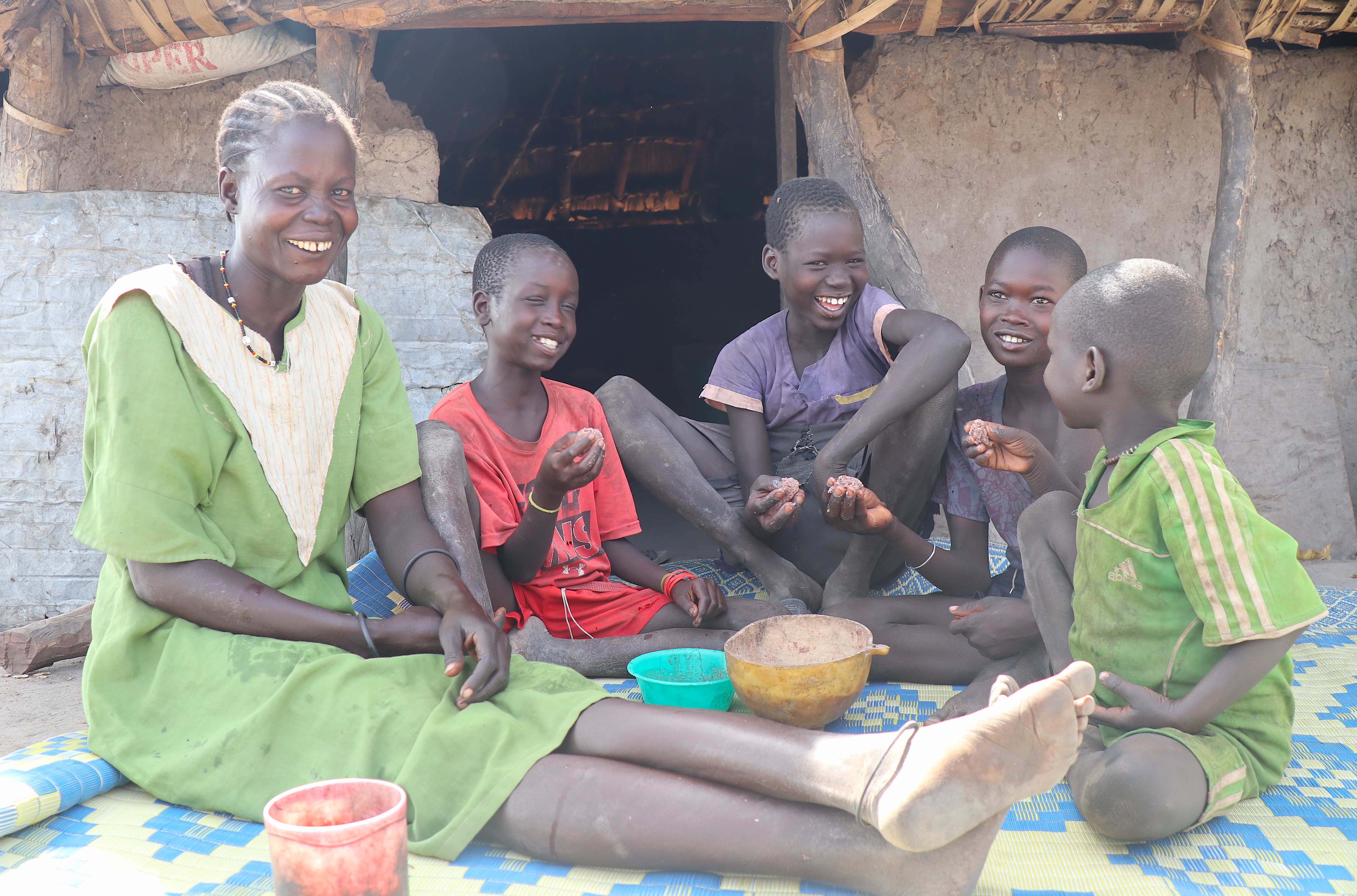
FEED II regularly hosts discussions with women and men about gender roles and decision-making. Adut actively engage with men to share responsibilities together resulting to some men responding positively. “I always focus my attention to what World Vision staff teach us about farming”, she adds.
Nyanut Liai, 36, a group member and mother of five shares, “I grew up accepting that women just follow men and whatever they say. I depended on my husband and when he died, I almost lost hope because I felt I could not do anything without him or his guidance.”
When Nyanut joined the project and earned on her own, she was able to save her children from hunger. “I bounced back on my feet and now take care of my children”, she says happily.
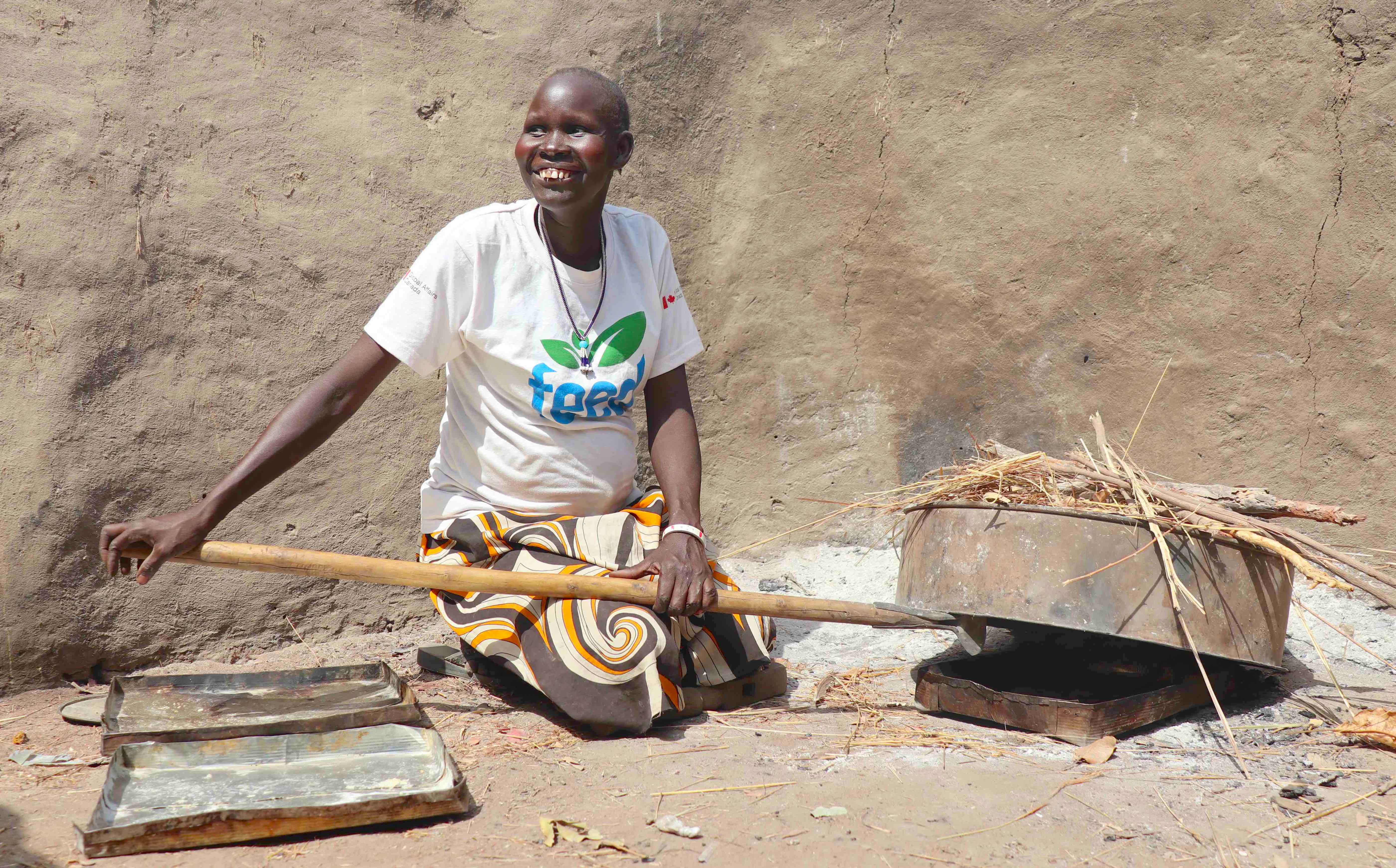
Download: FEED II's Gender Analysis Report
Story and photos by Scovia Faida Charles Duku, Communications Coordinator